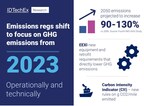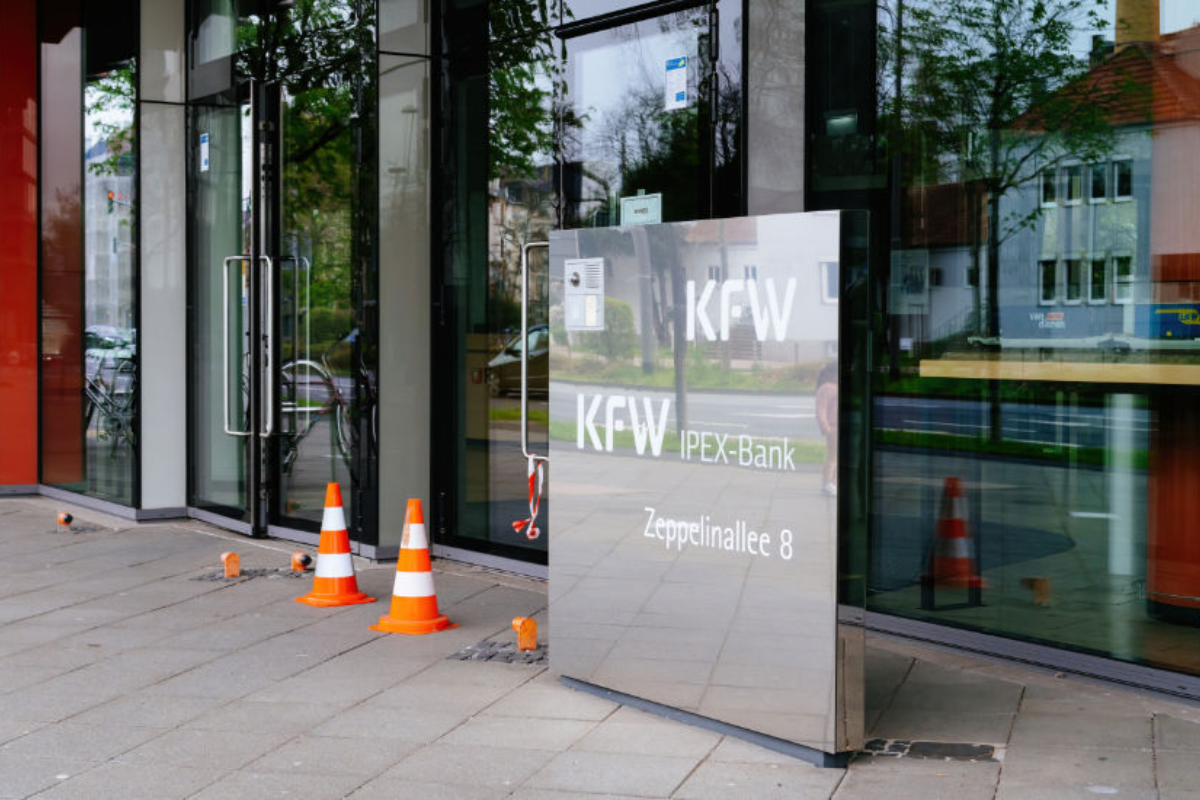Blockchain Press Releases
Electric Boat & Ship Markets Sail Past 1GWH in 2023, Reports IDTechEx

BOSTON, June 27, 2023 /PRNewswire/ — Across the land-based electric vehicle sectors tracked by IDTechEx, there is mostly a transition to battery-electric propulsion systems over the next two decades. The case is not so simple for the marine sector: due to the sheer scale of the power, energy and distance requirements for merchant vessels, reducing maritime emissions will require solutions ranging from giant Li-ion battery systems to green hydrogen fuel cells and other alternative fuels.
The new IDTechEx report, “Electric Boats & Ships 2024-2044“, provides granular 20-year forecasts in unit sales, battery demand (GWh) & battery market value ($ bn) for electric ferry, electric cargo/container, electric Ro-Ro, electric cruise, electric OSV, electric tugboat and electric recreational boats by power class (<1kW, <12kW, >25kW). Based on primary supplier interviews, it further shares technology analysis and price information on marine Li-ion battery systems ($/kWh 2020 – 2044) and electric propulsion systems.
Today, electric & hybrid propulsion systems in marine have mostly emerged in recreational boating, ferries and short-sea or inland vessels, where they have enjoyed steady uptake due to small vessel sizes or well-defined operational profiles that allow for opportunity charging. The IDTechEx report finds that cumulative battery deliveries since 2013 are set to surpass the milestone of 1GWh in 2023. While growth has been strong in inland and coastal marine sectors, uptake in larger deep-sea vessels is less rapid but gaining momentum as unprecedented global emissions regulations upcoming from the IMO and EU, which initially targeted NOx, SOx & PM, now focus on carbon & GHG emissions.
New IMO policy includes an ‘Energy Efficiency Existing Ship Index (EEXI)’ and the Carbon Intensity Indicator (CII). EEXI ensures a ship is taking technical steps, in terms of how it is equipped and retrofitted, to reduce greenhouse gas emissions. CII is a measure of the carbon emissions per amount of cargo carried per mile and targets reducing emissions operationally. The measures are expected to become mandatory from 2023, with the first ship ratings given in 2024.
The maritime sector is, therefore, under increasing pressure to decarbonize and meet broader climate goals. While there is no silver bullet, solutions are potentially emerging into ‘multiple silver bullets’, each of which can target a specific subsector. For example, batteries for pure electric ferries and tugboats, and green fuels (often paired with batteries) in hybrid sea-going vessels. For more information on green hydrogen, green ammonia and fuel cell applications in shipping, see the IDTechEx report, “Fuel Cell Boats & Ships 2023-2033: PEMFC, SOFC, Hydrogen, Ammonia, LNG“.
Pure battery-electric ships are often the best solution where operationally possible, in terms of reducing emissions and, typically, lifetime ROI costs. Technological advancements in electric powertrain technology, driven by the automotive sector, are allowing multi megawatt-hour systems to be proposed and installed on individual vessels, such as the 70MWh Ro-pax ferry proposed by Stena Line.
By volume, electric recreational & leisure boating is the largest market, with tens of thousands of electric propulsion systems sold yearly and new market entrants into the sector from incumbents such as Mercury Marine and General Motors (with an investment into Pure Watercraft). Recreational boats are the cars of the marine world – privately owned with relatively short-range requirements and pure electric with batteries up to a few hundred kWh. In contrast, several hundred hybrid deep-sea vessels are in-service today. Yet, this sector has the largest market value and demand for maritime batteries in the future due to the vessel sizes and high energy requirements involved, leading to giant battery systems per vessel.
Despite high initial CAPEX and energy density limitations, what is clear is that marine battery systems will continue to add value to both the smallest recreational boats and the largest sea-going ships, either by facilitating the leap to pure zero emissions operation or by improving the fuel economy of engines, and even fuel cells, driving a hybrid market.
To find out about the new IDTechEx report “Electric Boats & Ships 2024-2044”, including downloadable sample pages, please visit www.IDTechEx.com/MarineEV.
IDTechEx Research
This research forms part of the broader electric vehicle and energy storage portfolio from IDTechEx, who track electric vehicle markets and technologies across land, sea and air, helping you navigate whatever may be ahead. Find out more at www.IDTechEx.com/Research/EV.
About IDTechEx
IDTechEx guides your strategic business decisions through its Research, Subscription and Consultancy products, helping you profit from emerging technologies. For more information, contact [email protected] or visit www.IDTechEx.com.
Images download:
https://www.dropbox.com/scl/fo/mh8zf079l7q25a1z6qud2/h?dl=0&rlkey=ogzcwd88bbppox3gjrdpui9cd
Media Contact:
Lucy Rogers
Sales and Marketing Administrator
[email protected]
+44(0)1223 812300
Social Media Links:
Twitter: www.twitter.com/IDTechEx
LinkedIn: www.linkedin.com/company/IDTechEx
Photo: https://mma.prnewswire.com/media/2140506/Electric_Boats_Ships_2024_2044.jpg
Logo: https://mma.prnewswire.com/media/478371/IDTechEx_Logo.jpg
![]() View original content:https://www.prnewswire.co.uk/news-releases/electric-boat–ship-markets-sail-past-1gwh-in-2023-reports-idtechex-301863491.html
View original content:https://www.prnewswire.co.uk/news-releases/electric-boat–ship-markets-sail-past-1gwh-in-2023-reports-idtechex-301863491.html

Blockchain Press Releases
Venom and KuCoin Ventures forge strategic partnership

ABU DHABI, UAE, May 10, 2024 /PRNewswire/ — Venom, an innovative layer-0 and layer-1 blockchain network capable of hosting projects at massive scale, has continued to expand its offerings, this time forming a strategic partnership with KuCoin Ventures, the investment arm of KuCoin, a leading global crypto exchange.
The partnership follows on the heels of Venom’s launch into mainnet and the listing of the VENOM token on KuCoin.
One of the most anticipated new blockchain projects, the Venom network, has continued to make inroads across the blockchain industry following its launch into mainnet earlier this year. Venom has drawn attention due to its unique capabilities as both a layer-0 and layer-1 blockchain. The network is powered by Mesh technology, which allows it to communicate seamlessly and at great speed with other, independent networks.
Built to be capable of hosting massive platforms and projects, specifically global payment systems and CBDCs, Venom has emerged as one of the most promising new networks, with capabilities that could revolutionize what is possible in global commerce.
Now, the network has put itself in a prime position to further expand and integrate with other blockchain projects by reaching an agreement with KuCoin, one of the industry’s largest exchanges. KuCoin is one of the top-ten cryptocurrency exchanges with a daily trading volume of well over $500 million.
The new partnership would involve Venom receiving investment support for its VENOM token, while also providing enhanced visibility for projects integrated with the Venom blockchain on KuCoin. KuCoin Ventures will also provide support and resources during and after Venom projects on-boarding process.
Reached for comment on the new partnership, Venom Foundation CEO Christopher Louis Tsu had this to say: “This new partnership with KuCoin Ventures, the investment arm of KuCoin exchange, which is one of the industry’s largest and most important exchanges, marks a new chapter for the Venom network. This will open a lot of new doors for Venom and set the stage for collaborative work that will redefine this industry and allow Venom to reach its full potential. We are all very eager to see this come to fruition and what lies ahead for both us and KuCoin Ventures.”
About Venom:
Venom is a cutting-edge layer-0 and layer-1 network, seamlessly communicating and integrating with other independent networks through its innovative Mesh technology. The Venom ecosystem is anchored by a masterchain, which manages the overall network state and consensus, while workchains — an unlimited number of autonomous chains — host user accounts, smart contracts, and decentralized applications. Mesh technology revolutionizes inter-chain communication, optimizing interactions without compromising speed or unparalleled scalability. With a robust technology stack that ensures rapid finality, comprehensive security, stability, and user-friendly interfaces, Venom is the ideal network for hosting CBDCs and other large-scale platforms. Learn more at https://venom.foundation/
About KuCoin:
Launched in September 2017, KuCoin is a leading global cryptocurrency exchange with its operational headquarters in Seychelles. As a user-oriented platform with a focus on inclusiveness and community action reach, it offers over 800 digital assets and currently provides Spot trading, Margin trading, P2P Fiat trading, Futures trading, and Staking to its 30 million users in more than 200 countries and regions. In 2023, KuCoin was named one of the Best Crypto Exchanges by Forbes and recognized as a highly commended global exchange in Finder’s 2023 Global Cryptocurrency Trading Platform Awards.
Learn more at https://www.kucoin.com.
Contact for Venom foundation:
Email: [email protected]
Photo – https://mma.prnewswire.com/media/2409905/Venom_Foundation.jpg
![]() View original content:https://www.prnewswire.co.uk/news-releases/venom-and-kucoin-ventures-forge-strategic-partnership-302142400.html
View original content:https://www.prnewswire.co.uk/news-releases/venom-and-kucoin-ventures-forge-strategic-partnership-302142400.html

Blockchain
Proposed US Blockchain Integrity Act would ban crypto mixers for 2 years

A new bill introduced in the U.S. House of Representatives, known as the Blockchain Integrity Act, seeks to address concerns surrounding the use of cryptocurrency mixers and tumblers. The proposed legislation aims to regulate these privacy-enhancing tools, which are often used to obscure the origins of cryptocurrency transactions.
The bill, if passed into law, would impose strict regulations on the operation of cryptocurrency mixers and tumblers within the United States. These tools, which allow users to mix their funds with those of other users to obfuscate the transaction trail, have raised concerns among law enforcement agencies and regulators due to their potential use in money laundering, terrorist financing, and other illicit activities.
Under the Blockchain Integrity Act, operators of cryptocurrency mixers and tumblers would be required to register with the Financial Crimes Enforcement Network (FinCEN) and comply with anti-money laundering (AML) and know-your-customer (KYC) regulations. Failure to register or comply with these requirements could result in significant penalties, including fines and imprisonment.
The proposed legislation also seeks to empower law enforcement agencies to investigate and prosecute individuals and entities that operate unregistered cryptocurrency mixers and tumblers. By enhancing regulatory oversight and enforcement capabilities, the bill aims to safeguard the integrity of the blockchain ecosystem and prevent the illicit use of cryptocurrencies.
However, critics argue that the Blockchain Integrity Act could stifle innovation in the cryptocurrency space and infringe on individuals’ privacy rights. They contend that while cryptocurrency mixers and tumblers can be used for illicit purposes, they also serve legitimate privacy-enhancing functions, such as protecting users’ financial privacy and security.
The introduction of the Blockchain Integrity Act reflects growing concerns among policymakers about the potential risks associated with cryptocurrencies and their use in illicit activities. As lawmakers continue to grapple with these issues, it remains to be seen how the regulatory landscape for cryptocurrencies will evolve in the United States and around the world.
Source: cointelegraph.com
The post Proposed US Blockchain Integrity Act would ban crypto mixers for 2 years appeared first on HIPTHER Alerts.
Blockchain
Government-owned KfW elaborates on blockchain digital bond plans

The government-owned KfW Bank, based in Germany, is delving further into its plans to issue digital bonds leveraging blockchain technology. This move underscores the institution’s commitment to exploring innovative financial solutions in the digital age.
The proposed digital bond issuance is poised to mark a significant milestone for KfW, as it seeks to embrace the transformative potential of blockchain technology. By tokenizing bonds on a blockchain platform, KfW aims to streamline the issuance process, enhance transparency, and optimize operational efficiency.
One of the key advantages of digital bonds lies in their potential to reduce the reliance on intermediaries and streamline the entire bond lifecycle. Through blockchain-based tokenization, KfW aims to automate various aspects of bond management, including interest payments and maturity settlements, thereby reducing the need for manual intervention and minimizing operational costs.
Moreover, digital bonds have the potential to enhance liquidity in the secondary market, allowing investors to trade bonds seamlessly on digital asset exchanges. This increased liquidity could attract a broader range of investors, thereby diversifying KfW’s investor base and potentially lowering borrowing costs.
In addition to the issuance of digital bonds, KfW is also exploring the integration of blockchain technology into other areas of its operations. By leveraging blockchain for various use cases, such as trade finance and supply chain management, KfW aims to unlock new efficiencies and drive greater transparency across its ecosystem.
Overall, KfW’s foray into blockchain-based digital bonds underscores its commitment to innovation and its recognition of the transformative potential of blockchain technology. As the institution continues to explore and implement blockchain solutions, it is poised to stay at the forefront of digital innovation in the financial sector.
Source: ledgerinsights.com
The post Government-owned KfW elaborates on blockchain digital bond plans appeared first on HIPTHER Alerts.
-

 Blockchain2 days ago
Blockchain2 days agoAlpha Sigma Capital Research Releases April Report on ASC AI Index
-

 Blockchain4 days ago
Blockchain4 days agoEthereum Developers Target Ease of Crypto Wallets With ‘EIP-3074’
-

 Blockchain Press Releases4 days ago
Blockchain Press Releases4 days agoSecure, Compliant but Flexible: FinchTrade Elevates Crypto Custody Offering with Fireblocks
-

 Blockchain Press Releases5 days ago
Blockchain Press Releases5 days agoTiger Brokers (HK) officially launches virtual asset trading services, leading the way in Hong Kong’s online brokerage industry
-

 Blockchain2 days ago
Blockchain2 days agoBlockchain education initiatives take off amid crypto bull market
-

 Blockchain2 days ago
Blockchain2 days agoGhana’s crypto stamps honor king’s Silver Jubilee
-

 Blockchain5 days ago
Blockchain5 days agoTop 10 Sessions You Can’t Miss at MARE BALTICUM Gaming & TECH Summit 2024 (Tallinn, Estonia, 4-5 June)
-

 Blockchain Press Releases3 days ago
Blockchain Press Releases3 days agoHTX Collaborates with Astar Network to Accelerate Blockchain Innovation through the TGE Catalyst Grant





























